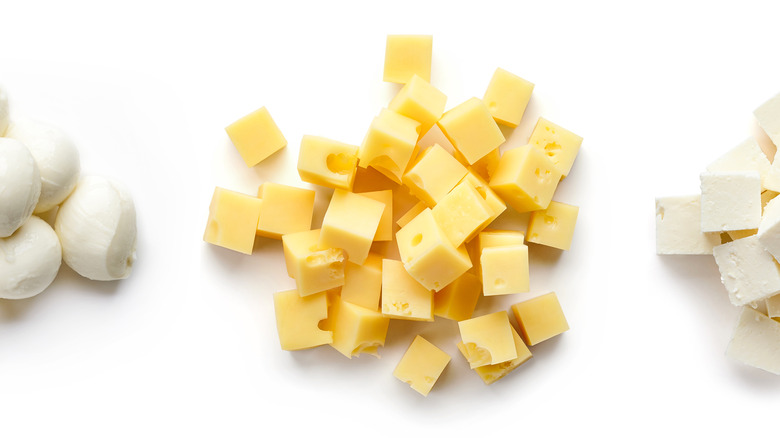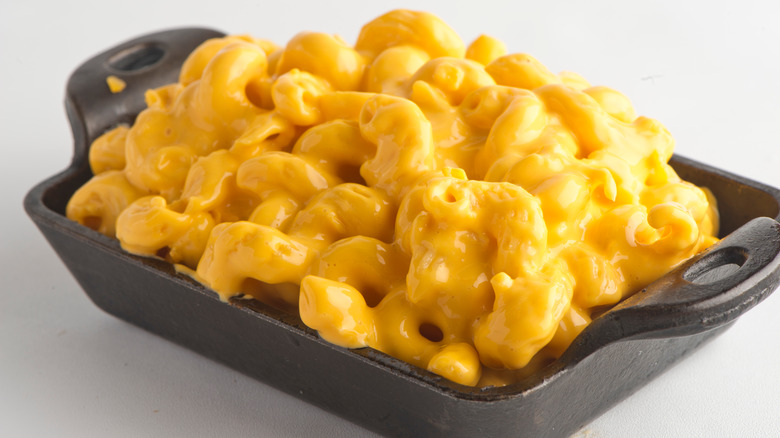The Real Reason Cheese Cravings Are So Powerful
Cheese may as well be its own food group. This versatile product can be eaten raw, melty, crumbling, toasted, crispy, and even used as a seasoning. With so many different kinds of cheese, it's no surprise that people crave this dairy (and sometimes even non-dairy) food. It's not just the taste, however, that causes these cravings. So, we turned to holistic health and nutrition expert Piper Gibson to help us understand the science behind these powerfully cheesy cravings.
Gibson explains that while it might feel like the human body is designed to crave cheese, there are more specific factors to consider. "Cheese is delicious and salty, but that's not the only reason you're craving it," she says. "Cheese cravings are more likely to occur after a stressful event or time than other cravings like sugar, which tend to hit when you're already hungry. There is a reason that most comfort foods contain cheese or some form of dairy; think mac and cheese."
While some believe that a craving for cheese may indicate a need for a specific nutrient such as fat or protein, Gibson cautions again that this may not be the case — instead, the fault lies with a substance called casein.
More cheese, please!
As Piper Gibson explains, "Cheese cravings are often attributed to sodium deficiencies; however, there is not much data to support that. Cheese contains casein — an addictive protein that has been shown to have the same effect on your brain as morphine." Now to be clear, this means that cheese works in the same process as other addictive substances, but does not mean it poses the same health risks as something like opioids — generally, casein's addictive factor is considered mild (via Healthline).
Casein isn't the only substance in cheese that makes it so craveable. "Cheese also contains an amino acid called phenylethylamine (PEA), a neurotransmitter that mimics the feeling of being in love and can elicit euphoria similar to amphetamine," Gibson notes. "In addition, cheese is rich in the amino acid tyramine, which triggers increased levels of dopamine — the same chemical released by the brain when people take opioids and feel a 'high.'"
It's clear cheese can literally make us feel happy, and in general a little cheese offers minimal risk. Overindulging in any type of food is generally not recommended, however, and cheese is no different. If you're experiencing extra-strong cheese cravings, try some healthy swaps (Gibson recommends vegan cheese brand Kite Hill) and follow standard nutritional guidelines to prevent yourself from overindulgence.

